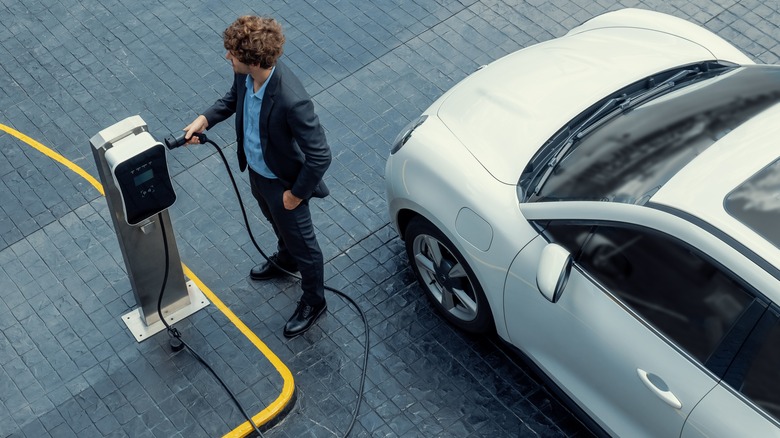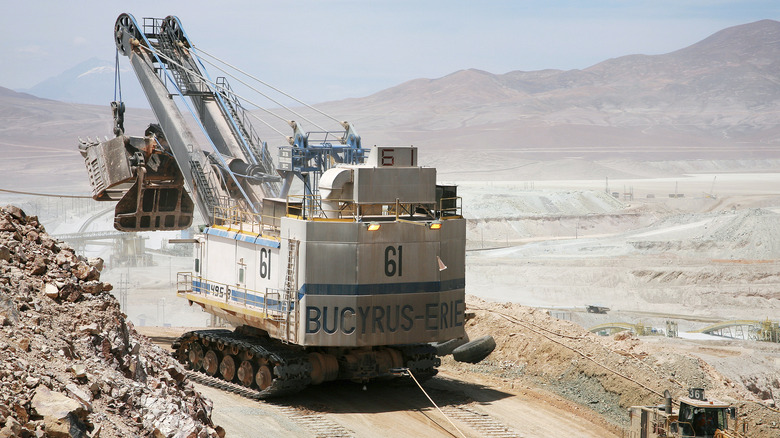How The War Of Electric Vehicles Has Become An Uphill Battle
It wasn't too long ago that electric vehicles were touted as the soon-to-be-saviors of the environment and the automobile industry. The promise of a future free of greenhouse gases, coupled with government incentives in the thousands of dollars, had the prospects for EVs looking as bright as those of the real estate market in the early 2000s.
However, there is a wise sentiment credited to wordsmiths from Geoffrey Chaucer on through Nelly Furtado that says, in various incarnations, that "all good things must come to an end." The real estate market, and seemingly now the EV market, have both borne this philosophy out.
The real estate bust that came around 2008 nearly tanked the world economy, and the current issues with electric vehicles are threatening to do serious damage to the automotive industry today. As EVs become more popular, the major issues with electric vehicles have become more commonly known and widespread — particularly the lack of adequate charging infrastructure, and the tremendous environmental impact of EV battery production and disposal.
Buyers are wary of EVs' complex issues
EVs have had their share of bad press, from reports of electrical fires in garages and after crashes, to stories about the devastating impact of mining for the rare-earth metals needed for EV batteries.
The issues with lithium-ion batteries catching fire while charging or being transported seems to be limited to batteries that have suffered physical damage, but the images of charred Teslas and smoking cargo ships are still fresh in the minds of potential customers. Further deterring future EV purchases are the new restrictions and limitations on the federal EV tax credit, which will take away some of the financial incentives to buy an EV in the coming years.
The waning enthusiasm for EVs has also led some manufacturers to delay their plans for new EV rollouts. Tesla's Cybertruck has undergone a series of production delays since the prototype was introduced in 2019, and customers will now have to wait until at least 2024 for the futuristic, supposedly bulletproof EV. Tesla isn't the only automaker to have to shuffle its EV plans, however, as General Motors delayed converting its Orion plant to EV production from next year until 2025.
GM spokesman Kevin Kelley told the Detroit Free Press the decision was in response to waning customer interest in EVs. "We're looking at EV demand and the trendline for EVs is stabilizing," he said. "It is not rising as fast as originally forecasted."

